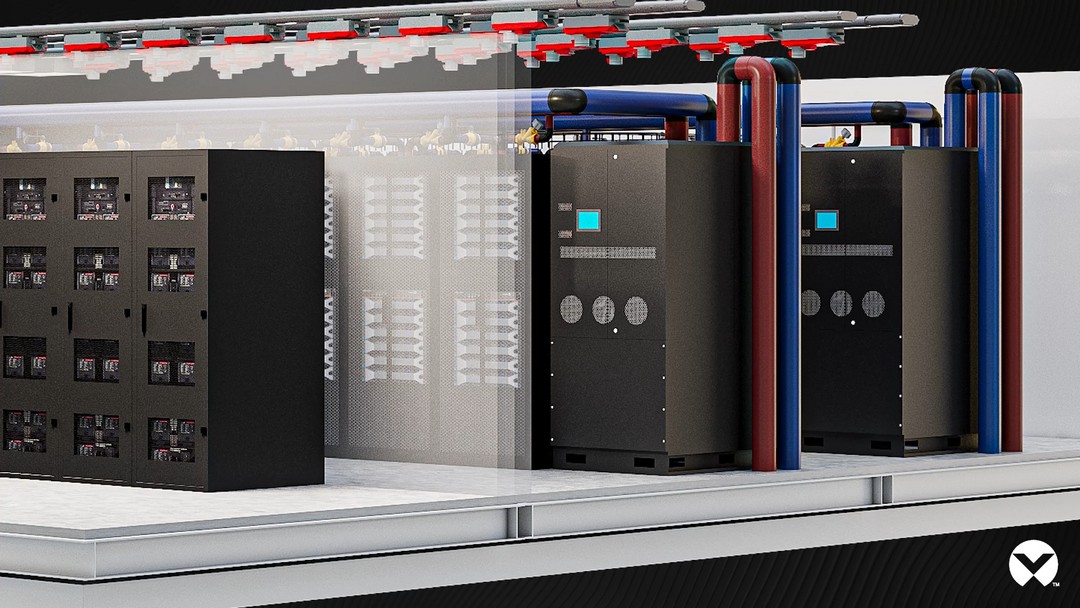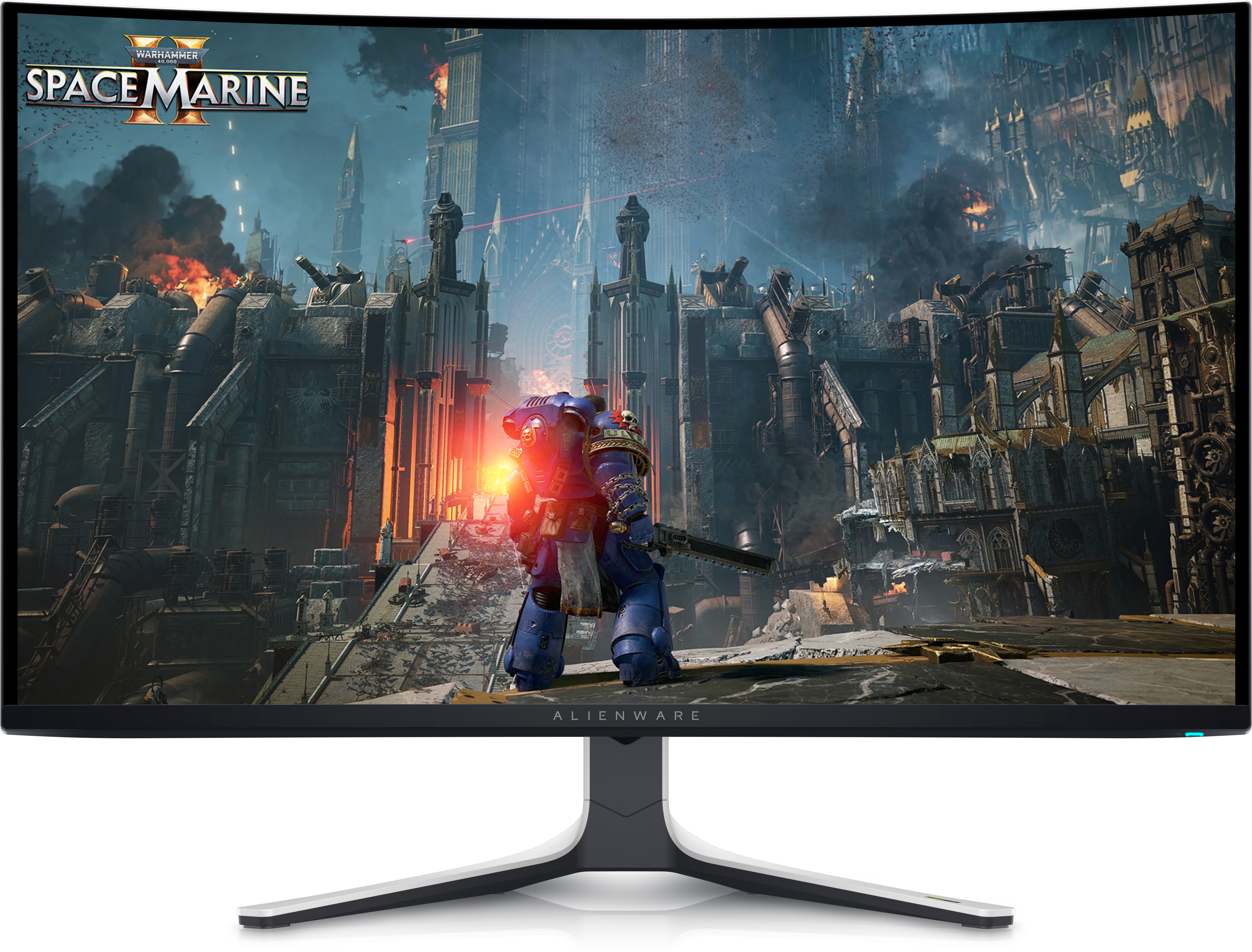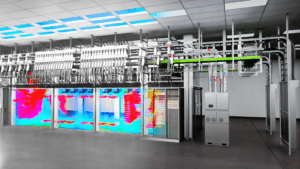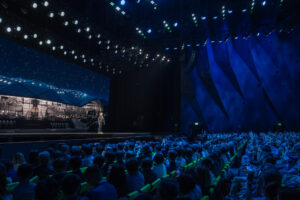
Vertiv, a maker of data centre equipment, has shown off a 7-megawatt reference design that would enable data centres to tightly pack in Nvidia’s latest high-performance graphics processing units (GPUs) to run AI workloads, while reducing energy.
Co-developed with chip giant Nvidia, the Vertiv reference architecture is designed to speed up the rollout of liquid-cooled Nvidia GB200 NVL72 computing racks, supporting up to 132kW per rack.
Each GB200 NVL72 connects 36 Grace CPUs and 72 Blackwell GPUs in a rack-scale design. It can act as a single massive GPU and promises 30 times faster real-time, trillion-parameter large language model (LLM) inference, according to Nvidia.
Vertiv’s collaboration with Nvidia works towards deploying AI data centres more efficiently to meet the needs of demanding workloads, said Giordano Albertazzi, the chief executive officer of Vertiv.
The new architecture aims to make it easier to run AI workloads in both new and existing data centres by closely integrating Vertiv’s power and cooling infrastructure with Nvidia Blackwell chips.
It promises reduced risk, faster deployment, and the standardisation of data centre designs across multiple sites. The architecture’s hybrid cooling solution, which combines liquid and air technologies, is expected to efficiently manage high-density heat removal, reducing cooling costs by up to 20 per cent.
The reference architecture includes advanced power management systems, such as the Vertiv Trinergy uninterruptible power supply and the Vertiv EnergyCore lithium battery cabinet, providing energy-efficient management in less space.
It also features Vertiv MegaMod CoolChip, which can provide AI critical infrastructure up to 50 per cent faster than traditional onsite builds, helping to accelerate deployment and enable retrofits.
The growing use of AI technologies that require significant processing power will drive up the demand for data centre power by 160 per cent by 2030, according to Goldman Sachs Research.
These new data centres that support accelerated computing and generative AI require architectures that are significantly more complex than those for general-purpose computing, said Jensen Huang, founder and CEO of Nvidia.
“With Vertiv’s world-class cooling and power technologies, we can realise our vision of creating AI factories that produce digital intelligence to benefit every company and industry,” he said.






